Quantitative Teasing
"Some subjects are so serious that one can only joke about them."
QT Marches On
David Rubenstein: What is your balance sheet now?
Jerome Powell: I think it's 8.4 trillion dollars.
Ben Bernanke, March 2010: I think we would like to bring the balance sheet back to something...under a trillion dollars...
Ron Paul. A trillion dollars?
Ben Bernanke. Or less, yes.
Just a shorter note today - in a day or two I’ll be doing an annotated post on the rambling interview I did yesterday, which is supposed to be released tomorrow.
According to a New York Times–Siena poll, 81 percent of registered voters described the condition of the economy as fair or poor, and only 19 percent called it good or excellent. Another poll, conducted by the Financial Times and the University of Michigan, found that a majority of voters said that they are worse off under President Biden then they were before, and only 14 percent said that they are better off.
Please - make it stop!
It’s a disease of central bankers:
Nowadays the comments are almost always better than the articles.
New York Times: "A 30-Year Trap: The Problem With America’s Weird Mortgages"
Love this (re: Blackstone)
This is amusing. From Grant’s:
It’s the choice of a new generation: CEOs are dusting off some old-school vernacular in their communications with investors and analysts. The term “choiceful” – whether used by executives to describe cost-conscious consumers responding to recent price pressures or their company’s own strategic actions – has appeared in 15 S&P 500 earnings calls in the year-to-date according to a CNBC tabulation of FactSet data, up from nine mentions last year and just a pair of instances in 2021.
That adjective, which dates from the late 1500s according to the Oxford English Dictionary but does not appear on Dictionary.com or in the Meriam-Webster edition, typically appears .002 times per million words of modern written English per the OED, residing within a category of terms “which are not part of a normal discourse and would be unknown to most people.”
Also:
"The average retirement balance stood at $107,700 as of Sept. 30, Fidelity finds, virtually unchanged from five years ago."
Not sure if this is apples to apples, but by my math, the S&P 500 is up 71% over 5 years ago.:
I noticed something.
Confirmed by Wikipedia (I know, I know), there've been NO 'panics' since Congress abdicated monetary policy to the Fed. We've had depressions, crashes, financial crises, "black days" etc. - but no panics anymore!
I feel better now.




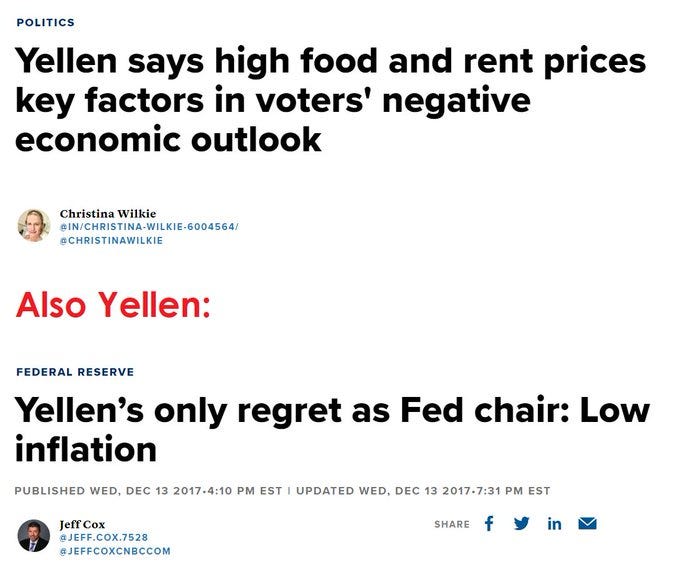
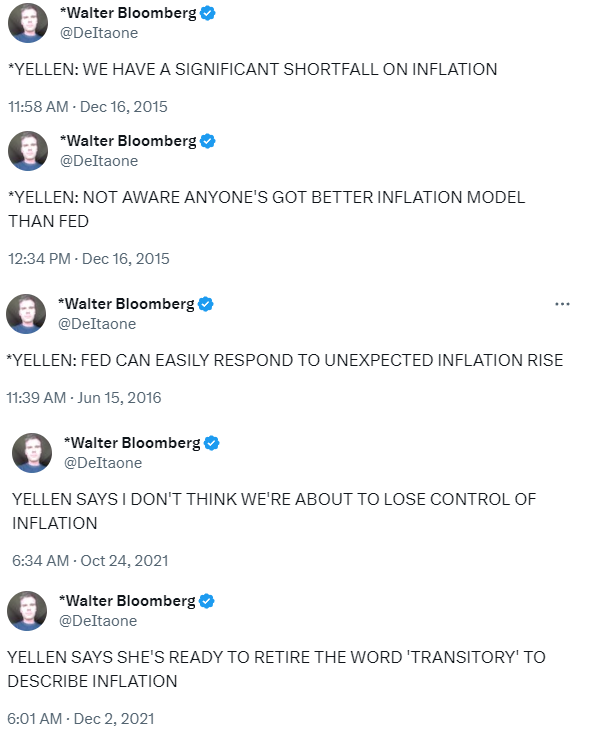

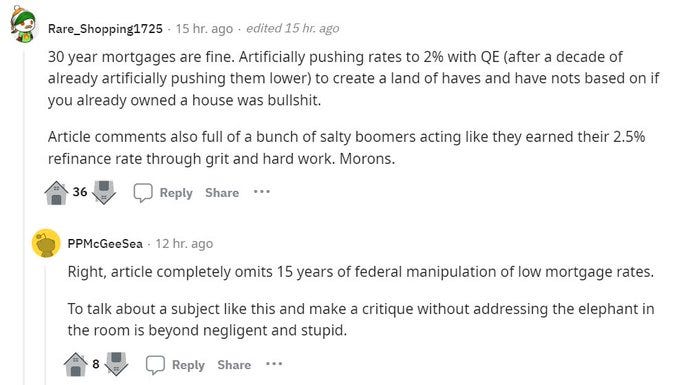


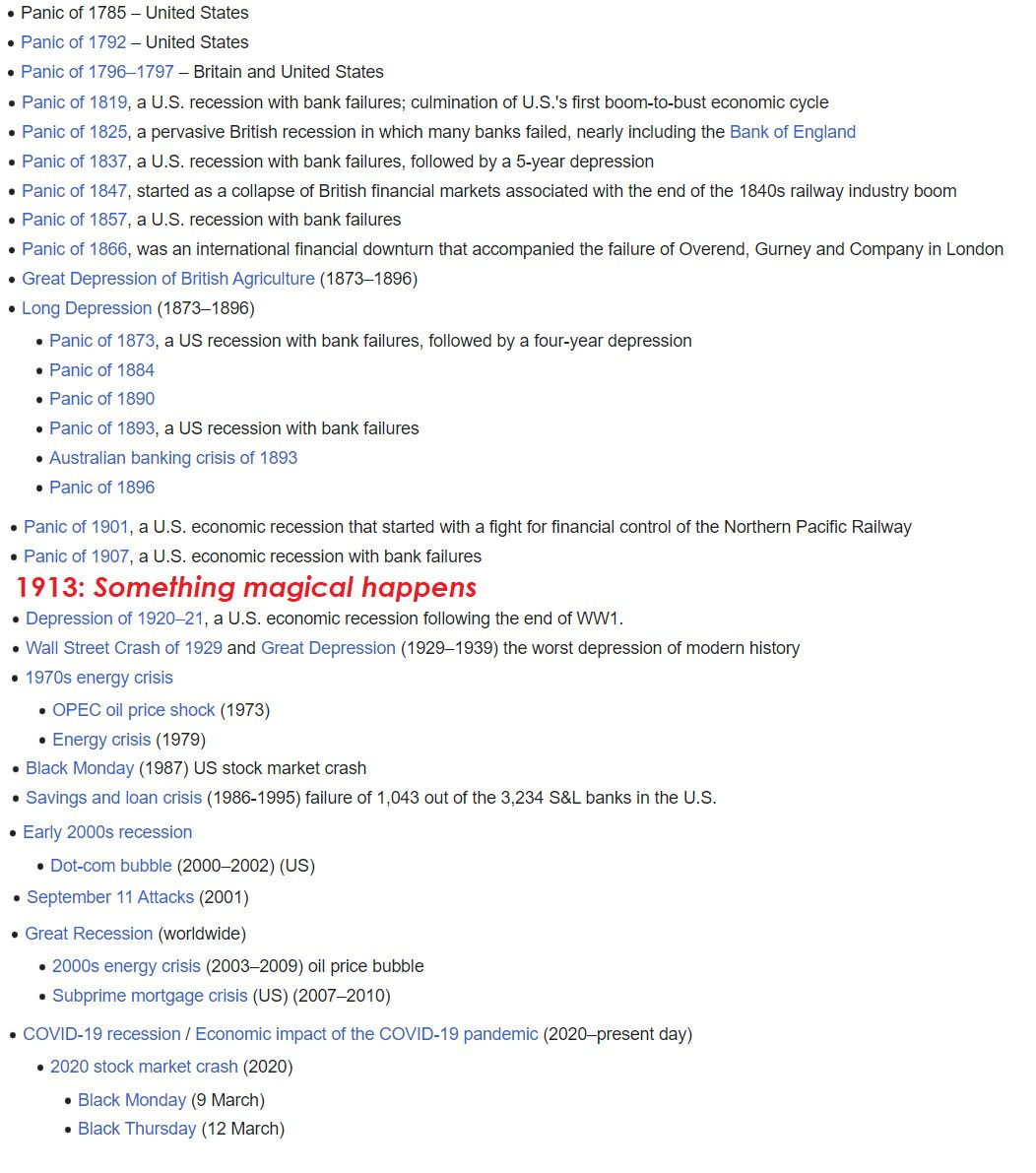
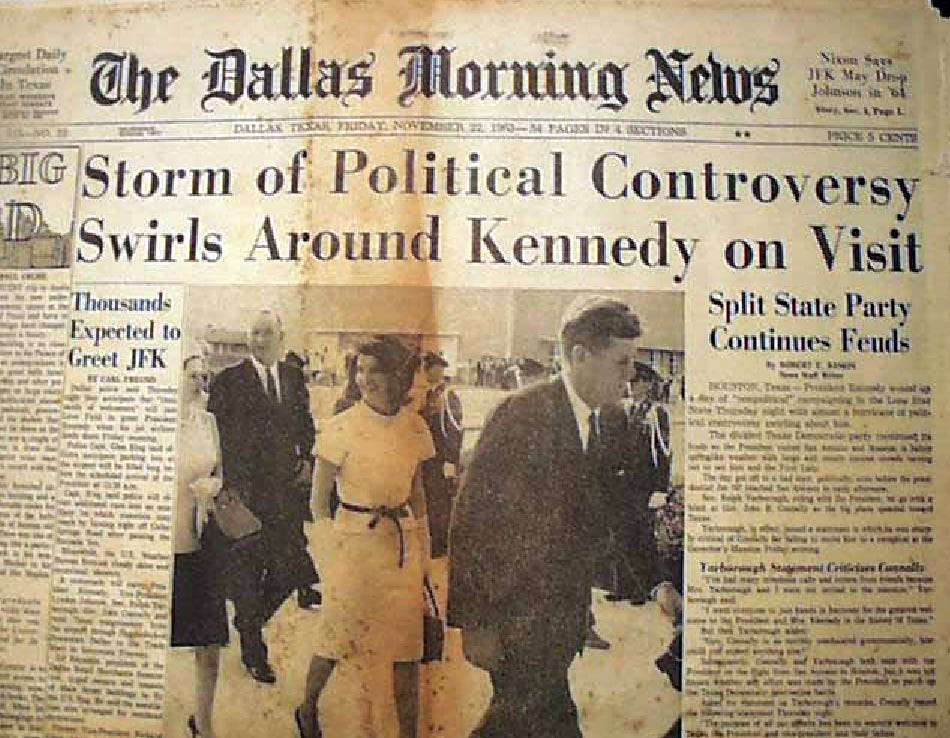
I mix the charts up to avoid boredom
In that clip, I think Powell admitted that the fed has monetized the debt because we will never get back to pre financial crisis balance sheet. He’s only talking about getting back to pre COVID levels which I bet won’t happen either.
Back in 2013, St Louis Fed wrote:
“ If the recent rapid accumulation of Treasury debt on the Fed's balance sheet constitutes a permanent acquisition, then the corresponding supply of new money would be expected to remain in the economy (as either cash in circulation or bank reserves) permanently as well. As the interest earned on securities held by the Fed is remitted to the Treasury, the government essentially can borrow and spend this money for free.”
Weird how Powell isn’t asked about this natural follow up question. I’d ask if I’m invited to the next FOMC press event.
https://research.stlouisfed.org/publications/economic-synopses/2013/02/01/is-the-fed-monetizing-government-debt/